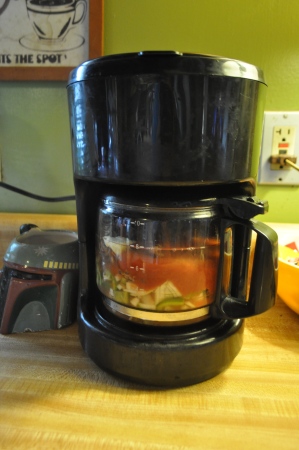
Consumers should be concerned about where their food comes from. In
Food Tyrants (Skyhorse Publishing, 2013), homesteader and writer Nicole Faires recounts her family's adventure to
America's small farms expecting to find inspiration. What she found was
mismanaged land and clueless urban farmers along with the manure-like
scent of a corporation-laced industry.
Using examples from her own life
and offering a brief history of food security, Faires explains how the
food in our plate is no longer "in our hand" and opens our eyes to a wide-scale problem that isn’t going away. With hands-on knowledge and a new view of the American farmer, shesuggests the answer lays in the soil and provides the information necessary to make informed, healthy food choices.
The selection from Chapter 1, linked below, offers a glimpse into the politics of food that run America: "The Abridgement of Freedom" excerpt: The Politics of Food - Food - Utne Reader
